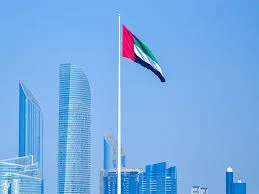In a significant development, Dr. Betta Edu, the Minister of Humanitarian Affairs and Poverty Alleviation, revealed the UAE’s commitment to establishing humanitarian response stations across Nigeria during the 28th Conference of the Parties (COP28).
Edu underscored the success of federal government initiatives, including Farmer Money, Trader Money, and Conditional Cash Transfer, which have positively impacted up to 3.5 million Nigerians. Notably, the payment of N20,000 to vulnerable groups in Cross River state is recognized as a substantial step toward poverty reduction.
While urging subnational governments to throw their full weight behind these initiatives for nationwide success, Edu’s call found resonance with Governor Bassey Otu. Governor Otu emphasized the state’s strategic focus on key sectors such as agriculture, security, and tourism to create job opportunities, praising the initiatives for their tangible contributions to poverty reduction. He further called for collective support to realize the ambitious goal of lifting 50 million Nigerians out of poverty by 2030, expressing readiness to collaborate closely with federal programs.
However, despite Edu’s optimistic assessment, recent reports from the World Bank paint a contrasting picture. The international financial institution suggests that less than 1 percent of poor and vulnerable households are benefiting from the federal government’s cash transfer program, raising valid questions about the accuracy of the stated figures. Additionally, the Bretton Woods institution reported a staggering 99.9 percent of target poor households lacking a National Identification Number (NIN), posing challenges for the intended cash transfer recipients.
As the nation grapples with the complexity of poverty alleviation programs, Dr. Betta Edu’s announcement during COP28 marks a pivotal moment, yet underscores the need for a critical examination of the effectiveness and reach of such initiatives for meaningful impact.





